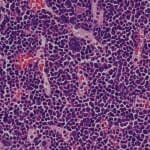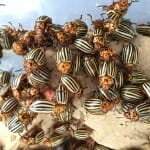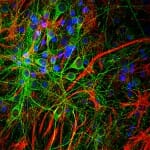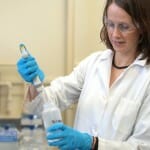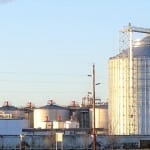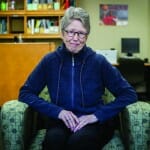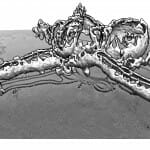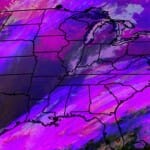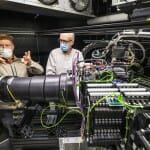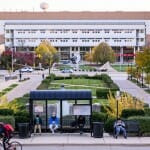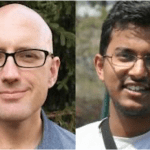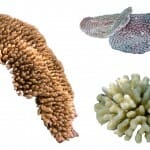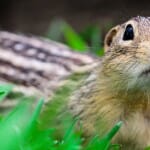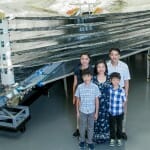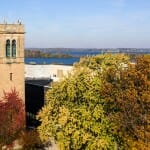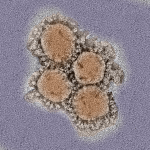Category Science & Technology
Ultraprecise atomic clock poised for new physics discoveries
The clock's design allows the team to test ways to search for gravitational waves, attempt to detect dark matter, and discover new physics with clocks.
At bioenergy crossroads, should corn ethanol be left in the rearview mirror?
New research shows that the carbon emissions from using land to grow corn can negate or even reverse any climate advantages of corn ethanol relative to gasoline.
Sharon Dunwoody was a ‘star’ of science communication
Sharon’s scholarship helped generations of journalists, students and scientists become better translators of complex ideas to audiences all over the world.
UW-built instrument will enhance views of distant galaxies
A near-infrared spectrograph, which splits light into its individual colors to form a rainbow-like spectrum, will soon be shipped to South Africa from UW–Madison. Custom-built here by staff in the Washburn Astronomical Laboratories, it will expand the capabilities of the Southern African Large Telescope.
New UW–Madison research projects to benefit Great Lakes
Wisconsin Sea Grant announced 12 new two-year research projects worth $2.8 million that build Great Lakes understanding, leading to science-based management and policy decisions. Six are at UW–Madison.
UW–Madison online graduate engineering programs rank in top 10
This is the eleventh year in a row that the online engineering programs, offered through the College of Engineering’s Interdisciplinary Professional Programs, have been highly ranked among a competitive field of engineering and online programs.
Coral skeleton formation rate determines resilience to acidifying oceans
A new UW–Madison study has implications for predicting coral reef survival and developing mitigation strategies against having their bony skeletons weakened by ocean acidification.
UW alum helped pack James Webb telescope for space travel
Wei-Di Cheng, a 1993 engineering graduate, analyzed mechanical ground systems to propose, design, fabricate, test and deliver ground systems to support spacecraft and payload integration.
Bus shelters to get solar-powered displays
In a collaboration with student organizations interested in sustainability, Transportation Services will start installing solar panels, lights and screens with real-time arrival information on bus shelters in 2022.

